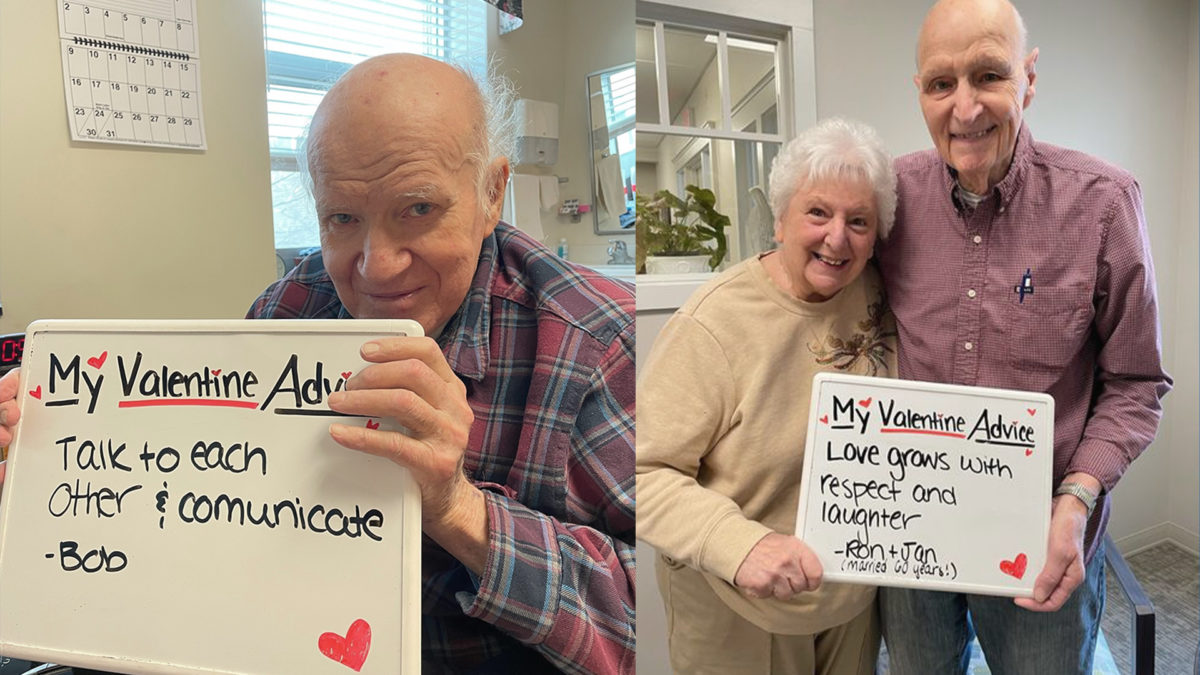A woman’s dad has been living at home since retirement. Everything has been good until he shows memory loss and some physical inconvenience. The woman thinks she should keep her father at home or send him to a long-term care home. However, her father insists on staying at home, so she’s in a dilemma now.
Who’s suitable to age in place?
Safety:
– Lives in a safe and age-friendly neighbourhood:
low criminal rate, quiet and peaceful
– Has the home remodelled for accessibility :
stairs, grab bars, alert system(smart home tech)
– Has stable health condition :
does not constantly visit an emergency room or hospitalization
– Does not have severe cognitive/memory problems
Able to read and think, stay safely at home
Care and Support
– Has a support network available:
community support, volunteer
– Have families or friends live together, or live nearby
less than 20 min of drive, respond rapidly
– Hires a caregiver or has a family to take care of him or her
Finance:
– Has stable and sufficient income or financial support
Benefit, pension, or financial support from families to afford remodelling and home care
– Able to manage bills or has a family to manage the bills
Financial security, prevent fraudulence
Shirley’s father has been enjoying his life at home since retirement. It has been 30 years, and everything has been great … until last month he fell down in the kitchen. The old man ascribes the fall to the slippery floor, while Shirley clearly knows that it is not this simple – her father has shown some cognitive impairment recently, and it does harm his mobility to some degree.
Shirley is usually busy working, and as a single mom, she dedicates her free time to taking care of her two kids. She has suggested that her father goes to a long-term care home. Not surprisingly, her father declines her suggestion without any hesitation.
It is not just her father. Shirley feels guilty about sending her father to a long-term care home, too. – she knows how much her father enjoys everything in the house, the garden, and the lovely neighbourhood vibes.
“Should I leave him at home?” The question bothers Shirley every night when she lays down in her bed.
Shirley is in a dilemma now, and we know some of you are in the same situation, just like her. According to our experience, letting a senior age in place is possible, but there are prerequisites. Here, CareStory has summarized these requirements that can allow your loved one to live happily and safely at home.
Who Is Suitable to Age in Place?
Safety:
– Lives in a safe and age-friendly neighbourhood:
You never want your loved one to live in an environment with insecurity. Check your local police online report to see the crime rate in the area. It is also important that the community that your loved one is living in is age-friendly, meaning it is quiet, peaceful, has various forms of transportation and many accessible community services. These factors can promote senior living quality and wellbeing. A very straightforward way to check if a community is age-friendly is to see how many assisted living homes are around the area – if there is one or more than one long-term care home in the area, it means it’s the right place.
– Has the home remodelled for accessibility:
One of the most important things to age at home is to make the place remodelled for seniors’ needs. For example, install grab bars in bathrooms and your family’s bedroom if she or he has mobility issues. If she or he needs to use a wheelchair, it is necessary to add outdoor ramps for your family to enter or exit the house. Make sure to add anti-slip flooring in the bathroom and kitchen to prevent falls. Sometimes you can also use smart home technologies such as an alert or sensor systems to monitor your loved one’s security. A full home remodelling project would cost around $10,000, but it will provide your loved one with a better and safer environment to age.
– Has stable health condition:
It is important to know your family’s medical requirements and his or her health needs to be stable. If your family has some acute symptoms that need to visit the emergency room or need hospitalization constantly, then he or she isn’t suitable for staying at home – it could be exhausting and worrisome for both you and your senior family.
– Does not have severe cognitive or memory problems:
Your loved one might have someone to take care of him or her, but he or she needs to be able to stay safely at home. If he or she has severe mental or cognitive memory deterioration, there’s a chance that your family can’t even keep up with all the support you can provide to him or her, and it will potentially increase the distress of you and the caregiver.
Care and Support
– Has a support network available:
There are many senior support networks that are offered by the government or non-profit organizations such as the Red Cross. These senior support programs are meant to provide daily support for older adults and their caregivers, which include phone call companionship, nutrition and transportation, emergency services, friendly visiting, etc. These services are provided by volunteers, so they don’t require a penny from your pocket. So, register one for your loved one. It will be extremely helpful for his or her in-home living.
– Have families live together or live nearby:
It is important that at least one family member live together with your senior family or have family members live close to him or her. We would recommend the distance between seniors and their family’s home is less than 20 min of drive, so you or other family members can make frequent visits to the senior’s house. If anything happens, the families can also respond rapidly to the emergency, which will give you a lot of reassurance of letting your loved one stay at home.
– Hires a caregiver or has a family to take care of him or her:
If you are the primary caregiver to your family, and you are getting more and more stressed about your workload, it is time to hire someone to alleviate your pressure.
“All You Need to Know About Long Term Care in 2022” There are many sources of home care options. You can consider hiring an agency to arrange a caregiver, or hire a private caregiver yourself, see our blogs on “How to choose a home care service” to see which one suits your needs.
Finance:
– Has stable and sufficient income or financial support
Staying at home comfortably does cost a pretty penny. As we mentioned, all these home remodellings, home care and the facilities that your loved one needs at home adding up could cost more than living in a long-term care home. So, make sure your senior family has a stable income, such as a pension, or any financial support from family and the government, so that he or she can afford these expenses.
– Able to manage bills or has a family to manage the bills
Seniors are prone to financial abuse such as fraudulence or exploitation. Also, they might forget to pay bills or make unnecessary purchases due to aging. In that, it is essential that they have someone reliable to manage their expenses and bills if they can’t do it on their own. Financial security is just as important as physical security, and your loved one might need your help with it.
At the End:
Staying at home or moving to a long-term care home could be highly personal. It is better to talk it through with your loved one and find the best solution that’s beneficial for both of you. If you would like to know how to communicate with your senior family, see our previous post on “How to Communicate with Seniors” to find the guide.
References:
https://dailycaring.com/keeping-aging-parents-at-home-5-top-caregiving-tips/
https://www.canada.ca/en/employment-social-development/corporate/seniors/forum/aging.html
https://www.consumeraffairs.com/homeowners/aging-in-place-home-modifications.html













